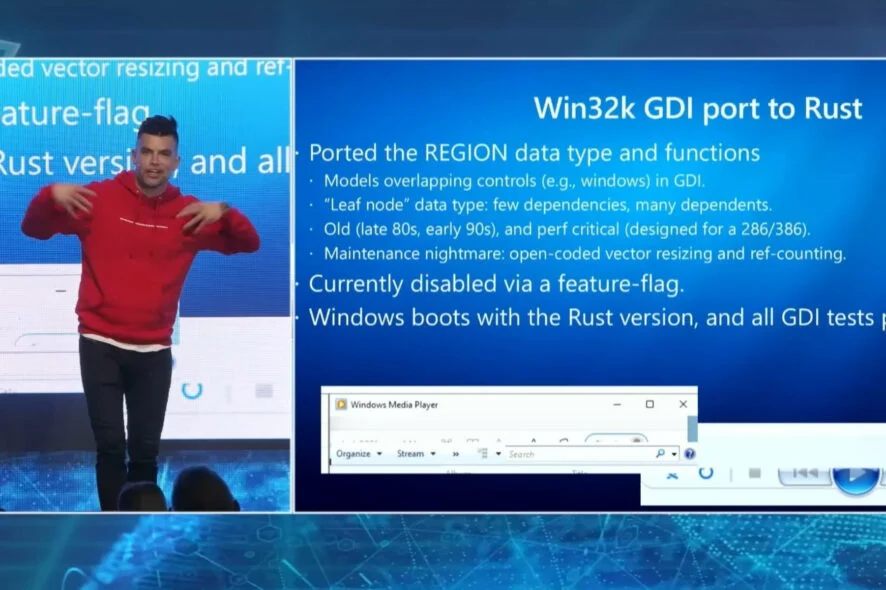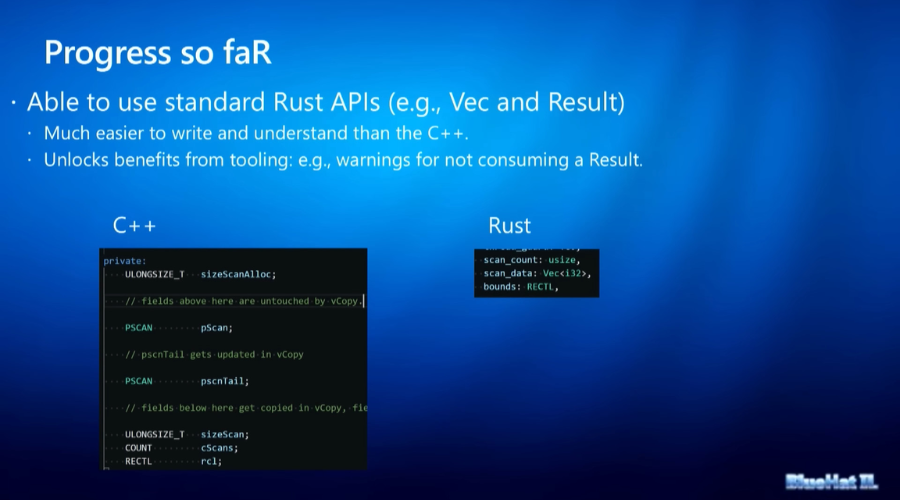Microsoft has recently announced its plans to halt feature updates for Windows 10, allowing the tech giant to concentrate its efforts on enhancing the performance and security of Windows 11 and future iterations such as “Windows 12.” During the BlueHat IL 2023 conference, David Weston, Microsoft’s Corporate Vice President of Enterprise and Operating System Security, revealed plans to rewrite the Windows 11 kernel using Rust, a programming language known for its memory safety and efficiency.

Rewriting Windows 11 kernel with Rust
The switch from C++ to Rust aims to make the kernel more concise, secure, and efficient. Microsoft has already added a significant 36,000 lines of Rust code to the kernel, which has led to the elimination of many unsafe subroutines that previously existed. The Rust language provides improved memory safety and better performance, as evidenced by the minimal performance loss after porting Office applications to Rust.

Most benchmark tests demonstrated only slight differences between the Rust and C++ kernels, with Rust outperforming the C++ kernel in certain cases. The success of this transition was further highlighted when the Win32k Graphics Device Interface (GDI) was ported to Rust and successfully passed all Windows boot tests.
Microsoft anticipates that the Rust kernel could be implemented in Windows 11 systems within the next few weeks or months, providing users with enhanced security and performance. This significant change reflects Microsoft’s commitment to developing a more secure and reliable operating system for its customers.
RELATED:
- Microsoft acquisition of Activision Blizzard gets blocked by UK
- Samsung launches Free Xbox Gaming Zones at Microsoft Experience Centers in London & New York
- Microsoft President: China to Emerge as Main Competitor of ChatGPT in AI Race
- Microsoft Releases Vibrant Xbox Elite Controller Series 2 Youth Edition in China for 999 Yuan
- Honor Magic5 Pro vs Huawei P60: Specs Comparison
(Via)







